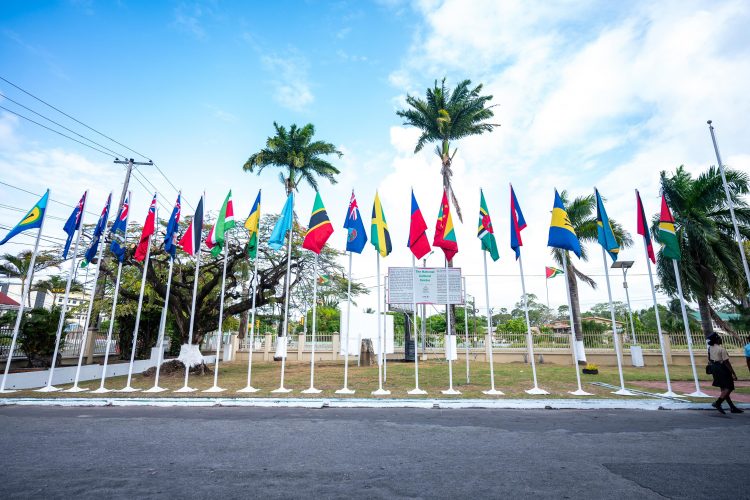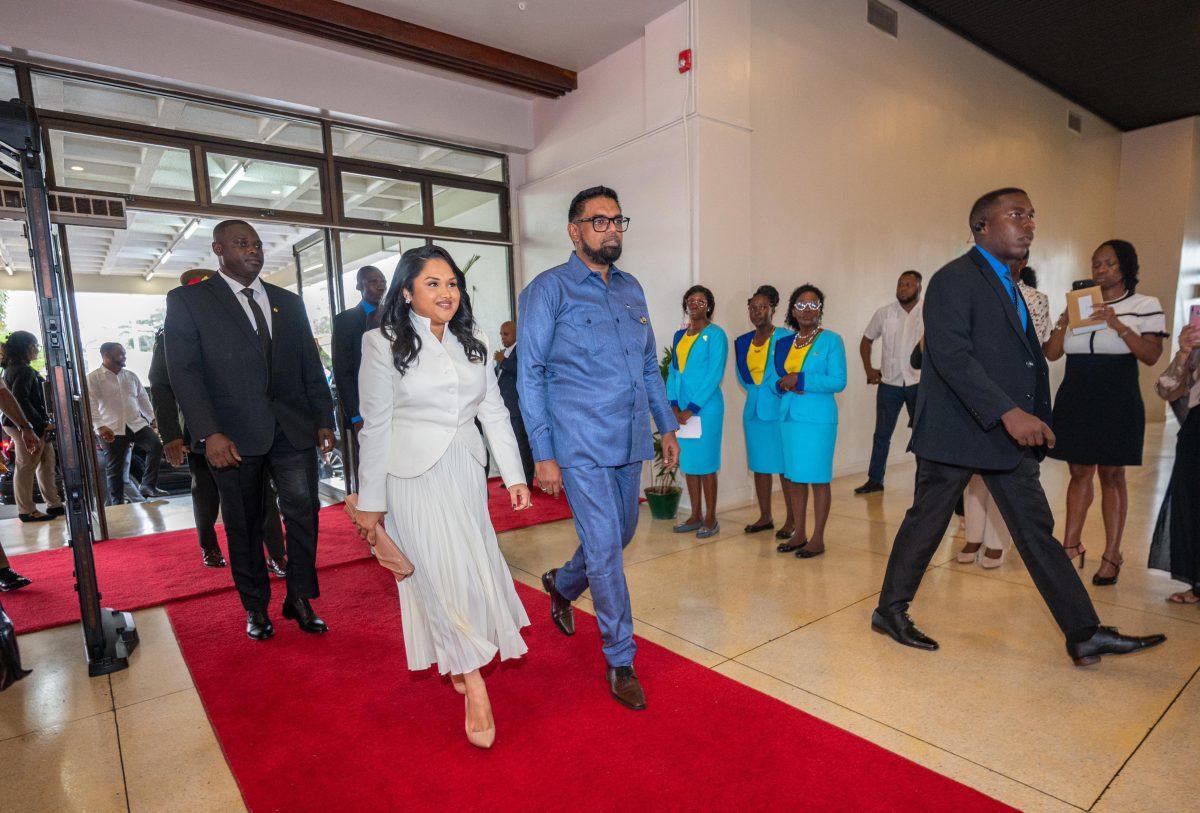With data showing that some 57% percent of the region is affected by hunger or malnutrition, incoming Caricom Chairman President Irfaan Ali said that the regional bloc will add to its current goal of 25% reduction on food importation by 2025 to also focus on eliminating the scourges of hunger and malnutrition by 2030.
“The 25 by 2025 remains a top priority. However, we are of the view that we must now focus on ending hunger and malnutrition by 2030. We are proposing to bring together the human assets that this region nurtured into international fame to bring their goodwill…, as ambassadors, to mobilise international financing and support, so that we can end hunger and malnutrition in this region by 2030. We have the capability,” Ali said.
It will be a year of much work focused heavily on food sustainability, according to Ali. He listed strategic development and implementation plans which have been crafted, stressing that they need the collective commitment of all of the countries’ leaders for them to be achieved.

Among the plans are tapping into the resources of international partners such as the United States, Canada, the United Kingdom and Saudi Arabia, among others, to get especially women and youth more involved in agriculture in the region.
Pointing to well-known sports personalities such as sprint world record holder Usain Bolt, Jamaican cricketer Chris Gayle and Guyanese Clive Lloyd, he expressed, “we have to use these assets and mobilise and create ambassadorial missions.”
With Saudi Arabian Minister of State for Foreign Affairs Adel Al-Jubeir in attendance and Brazil’s President Luiz Inácio Lula da Silva due to arrive tomorrow and also meet with Caricom, Ali informed that part of the agriculture initiative includes both countries.
He said that the region has also submitted a sustainable agriculture project to Saudi Arabia at the cost of US$25 million and that it is in the advanced stages of discussions for possible disbursement. This project will target women and youth. “We are hoping that in the coming weeks that we will finalise arrangements to have this US$25 million disbursed in the region to support our food production system,” the Caricom Chairman said.
Some US$650 million in projects had been approved by Saudi Arabia in 2023 for the region, Ali informed. “US$150 million in projects are already approved and in the process of disbursement. A third $100 million is approved and is awaiting formal sign off and we have $400 million in the pipeline to be discussed and finalised with Saudi Arabia,” he said.
Guyana, Ali pointed out, is also investing in a “centre of excellence equipped with a situational room and a state-of-the-art data analytics platform,” to support regional food security and regional food production.
Ali said that the platform will focus on the area of regional development, real time data technology and predictive data modules to help farmers. The programme is being done in conjunction with the Food and Agriculture Organisation and other entities, a regional project.
Crops have already been chosen with target self-sufficient dates and these were listed as corn, soya, red and black-eyed beans, “by the end of 2026 and without a doubt we will achieve this,” he stressed. “This is the real work we are doing in Caricom.”
Bulleting the plans that Caricom has for agriculture development and value added in the region, Ali said that bringing tangible outcomes required a lot of the trade barriers being removed. “We are continuing work to address the removal of trade barriers within member states and the people of Caricom must put pressure on the leaders of Caricom to remove the trade barriers. It is of no use and purpose for this region. We are too small,” he said.
“People of this region, call on your leaders to remove these barriers. Let them hear you loudly. These barriers need to go and need to go urgently.”
He lamented over the dismal strides made as regards the Caricom Single Market and Economy (CSME), noting that so much could be discussed it would use up the meeting’s entire period. “We have 113 pages of decisions under the CSME that are awaiting implementation; 113 pages! We must correct this. We cannot move forward without correcting this,” he emphasised.
The private sector was also named to participate as Ali pointed to the US$100 million purse facilitated by Republic Bank Limited, which he said has already seen US$17 million disbursed on food and agricultural projects within the region.
“We will be launching a development workshop soon for the region to better position itself and the private sector to benefit from this low interest facility from Republic Bank,” he said.
Caricom is also working with Brazil (EMBRAPA) for the rebuilding of the citrus sector in the region, focusing on having 1,000,000 citrus plants available by the end of December this year “so we can revitalise the citrus industry in the region,” Ali said.
For her part, Caricom Secretary General Dr Carla Barlett said she was confident that with harnessing collective wisdom Caricom can “deal with threats and challenges faced” and this meeting’s focus with its heavy regional and international agenda, will push it closer to minimising the challenges. “Our past and present generations of leaders have established a solid foundation for us to build on…,” she said.
Meanwhile, outgoing chairman, Prime Minister of Dominica Roosevelt Skerrit said that he was leaving with pride and immense gratitude. He stated that over the past year a number of steps were taken in the direction of self-sufficiency, even as fostering collaboration and innovation among farmers remained the goal in the food and nutrition sustainability and resilience areas.
The region, he said, “remains on course to reach our 25 by 25 food initiative targets” advancing food and nutrition security.











